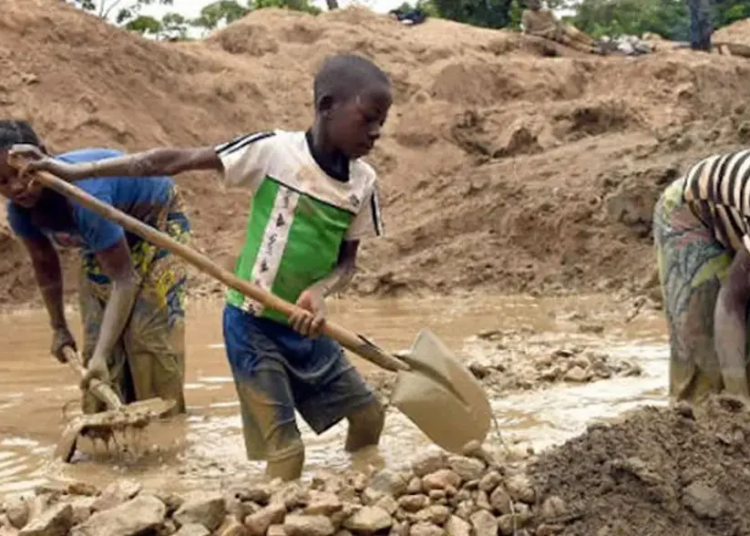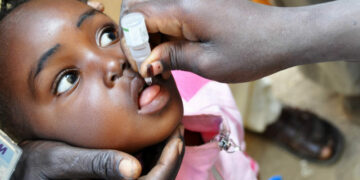Recently, the federal government disclosed that 15 million children are engaged in child labour in the country.
It also gave the assurance that it was not relenting in its efforts to see that the fight against child labour and forced labour was reduced to the barest minimum, if not completely eradicated.
In the considered opinion of this newspaper, this is an alarming figure that cannot be ignored or brushed aside.
As a nation, we must take urgent steps to address this issue and ensure that our children are protected from exploitation and abuse.
Child labour is a global problem, affecting millions of children around the world. According to a report by the International Labour Organisation (ILO) about 160 million children are actively engaged in child labour globally.
In Nigeria, it is particularly prevalent due to poverty, lack of access to education, and a cultural acceptance of children working from a young age. Many children in Nigeria are forced to work in dangerous and exploitative conditions, depriving them of their childhood and putting their health and safety at risk.
Indeed, the consequences of child labour are severe and long-lasting. Children who are forced to work at a young age are denied the opportunity to receive education and develop the skills they need to succeed in life. They are also at greater risk of physical and emotional abuse, as well as health problems caused by working in hazardous conditions.
To address this issue, we need a comprehensive approach that addresses the root causes of child labour and provides support to families and children who are affected. This includes increasing access to education and vocational training, improving working conditions for adults, and enforcing laws that prohibit child labour.
One of the most important steps we can take is to invest in education. By providing free and compulsory education for all children, we can ensure that they have the opportunity to develop the skills they need to succeed in life. This will also help to reduce poverty and improve economic opportunities for families, reducing the need for children to work.
Sadly, the goal of free and compulsory education in the country is in jeopardy. We recall that in September 1999, the federal government created the Universal Basic Education Programme which is aimed at ensuring free education for children at the primary school level and three years of junior secondary school.
Part of the provisions of the programme is the provision of funds to assist states in implementing ideals of the programme. For UBEC, 2 percent of the Cumulative Statutory releases of the country’s consolidated revenue fund is set aside to fund the programmes and projects.
However, a report by Dataphyte shows that between 2005 and 2021, 32 states did not access over N48 billion UBEC funds available for improving basic education across all states.
The reason for the failure to access funds that are crucial to the educational outcomes of the states is likely because of the way the UBEC funds are structured. To access allocated UBEC funds, states must match the grant amount available up to at least 50 percent.
As a newspaper, this is unacceptable and state governments need to wake up from their slumber.
In addition to education, we must also improve working conditions for adults. Many children are forced to work in hazardous conditions because their parents or guardians are unable to find safe and decent work. By providing better working conditions and a living wage for adults, we can reduce the demand for child labour and ensure that families are able to support themselves without relying on the labour of their children.
Enforcing laws that prohibit child labour is also essential. Nigeria has laws in place that prohibit child labour, but these laws are often not enforced. We must ensure that those who exploit children are held accountable for their actions and that children are protected from exploitation and abuse.
Furthermore, we must also raise awareness about the dangers of child labour and the importance of protecting children from exploitation. This includes educating parents and communities about the risks of child labour and the benefits of education, as well as working with employers to develop policies and practices that protect children from exploitation.
Indeed, the issue of child labour in Nigeria is a complex and multifaceted problem that requires a comprehensive and coordinated response. The country’s authorities must address the root causes of child labour and provide support to families and children who are affected. By investing in education, improving working conditions for adults, enforcing laws that prohibit child labour, and raising awareness about the dangers of child labour, we can ensure that our children are protected from exploitation and abuse and have the opportunity to reach their full potential.
The time to act is now to ensure that no child is forced to work in dangerous and exploitative conditions, and that every child has the opportunity to receive an education and achieve their dreams.





